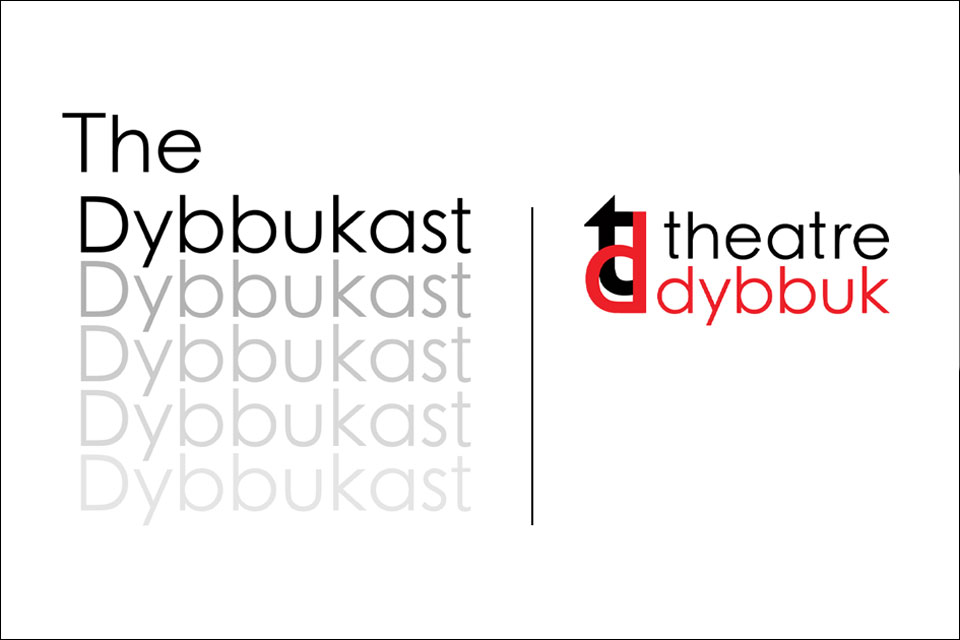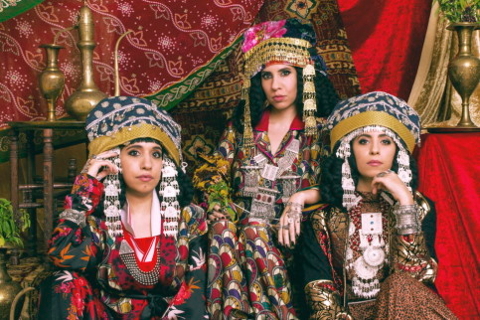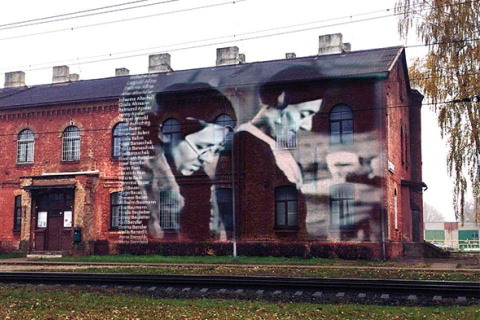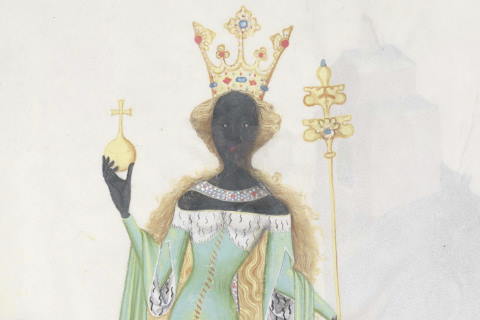Brandeis Scholars and theatre dybbuk Team Up for a Podcast on Jewish History

Photo Credit: theater dybbuk
Feb. 24, 2023
By Penny Schwartz, P'13A series of podcasts from the department of Near Eastern and Judaic Studies (NEJS) and the Los Angeles-based theatre dybbuk features Brandeis scholars illuminating vital but often overlooked events from Jewish history and actors performing readings from relevant texts.
The five episodes, available on the second Friday of each month between February and June, are part of the theater group's third season of "The Dybbukast," which features readings and interviews with artists and scholars about Jewish history and culture.
"Focusing each podcast on a particular text is a lovely way to bring the past to life and to explore a hidden aspect of Jewish culture," said Jon Levisohn, NEJS department chair and the Jack, Joseph and Morton Mandel Associate Professor of Jewish Educational Thought.
"The humanities have the capacity to open up new understandings of particular cultures and of humanity in general," he added. "Jewish history and culture are more diverse than many might imagine, replete with fascinating internal debates and disagreements."
The subjects in the podcast episodes featuring NEJS faculty are:
- February 10, "The Chronicles of the Rabbis," a late 19th-century American play spoofing the rabbis of New York City of the time. (University Professor and Joseph H. & Belle R. Braun Professor of American Jewish History Jonathan D. Sarna '75, MA'75)
- March 10, "The Imagined Childhood," a delightful and witty short story by the prolific 20th-century Iraqi-born Israeli writer Shimon Ballas. (Marash and Ocuin Assistant Professor of Ottoman, Mizrahi, and Sephardic Jewish Studies Yuval Evri)
- April 14, "The Sayings of the Desert Fathers and Mothers," a collection of teachings by Egyptian Christian monks, male and female, from the 4th century, that was widely disseminated across Europe and the Byzantine Empire. (Myra and Robert Kraft and Jacob Hiatt Associate Professor of Christian Studies Darlene Brooks Hedstrom)
- May 12, "The Book of Tahkemoni," a collection of Jewish tales from medieval Spain widely regarded as the crowning jewel of Hebrew maqama literature (rhymed prose interspersed with verse). (Edmond J. Safra Professor of Sephardic Studies Jonathan Decter)
- June 9, "Studying Sacred Texts." theatre dybbuk performers will enact a scene from a contemporary American Jewish classroom where students and their teacher read, explore, and develop ideas about a biblical text. (Jack, Joseph and Morton Mandel Assistant Professor of Jewish Education Ziva R. Hassenfeld)
The idea for the podcast series took root last spring when Levisohn, a fan of the Dybbukast's earlier seasons, reached out to theatre dybbuk's artistic director Aaron Henne about a possible collaboration.
"Jewish history and communities are spread across the world in so many different situations throughout time," Henne said. "The podcast serves as a great entry point to have complex conversations about our world, to look at questions of identity and power in society throughout Jewish history."
In the episode on "The Chronicles of the Rabbis," Sarna discussed the play's satirical take on the schism in New York's rabbinate between European- and American-trained rabbis.
The work was written in 1897 under a pseudonym by Jacob Philip (J.P) Solomon, the founder and editor of New York City's Hebrew Standard, a widely read English-language Jewish newspaper.
The play's central character, Episcopus, is fashioned after the real-life Gustav Gottheil, a European-born and educated rabbi steeped in Jewish learning. As head of Temple Emanu-El, a world-renowned New York City Reform temple with the Central-European Jewish elite among its members, Gottheil was the city's foremost rabbi.
"It was a satire, a parody — making fun of rabbis! Literature of this type is uncommon," Sarna wrote in an email.
He has just published the play's text, with introduction and commentary, in a volume he co-edited entitled "Yearning to Breathe Free: Jews in Gilded Age America."
The podcast on "The Sayings of the Desert Fathers and Mothers" features Brooks Hedstrom talking about the oral tradition and its development in written form in Late Antiquity.
Brooks Hedstrom said the pearls of wisdom in "The Sayings of the Desert Fathers and Mothers" echo those found in books on mindfulness that are popular today.
"The monks talk about the struggles of aging and being alone. Some of these ideas are timeless," said Brooks Hedstrom, whose latest book, "Desert Ascetic of Egypt: Past Imperfect," was published in February.
Some may wonder how this podcast episode relates to Jewish studies. But Levisohn said that this was intentional.
"We shouldn't imagine that religious cultures exist in isolation. It's much more interesting to think about the interrelationship between cultures that have coexisted alongside each other and have been mutually influential," he said.
"Plus," he added, "we wanted to showcase the diversity of the NEJS department, which is part of what makes it so distinctive."
In the podcast on "The Imagined Childhood," Evri introduces the audience to the writer Shimon Ballas.
Ballas wrote in Arabic and Hebrew and penned dozens of works of fiction, short stories, children's books, scholarly research, and a memoir, exploring his deep connection to Iraqi and Arabic culture.
Levisohn said the collaboration between theatre dybbuk and NEJS will help the department's faculty reach a non-academic audience.
"The intended audience is people who are delighted and intrigued by unfamiliar stories and texts but do not want to read an academic text with endless footnotes," he said. "This goes beyond the greatest hits of Jewish history."
"In addition to the inspired theatre dybbuk performances, we get the benefit of the expertise of these NEJS scholars as tour guides through the material," he added.
Listeners can also subscribe to The Dybbukast on Apple, Google Podcasts, Amazon Music, Stitcher, YouTube and other podcast platforms. This season of The Dybbukast is partly supported by a grant from Lippman Kanfer Foundation for Living Torah.



